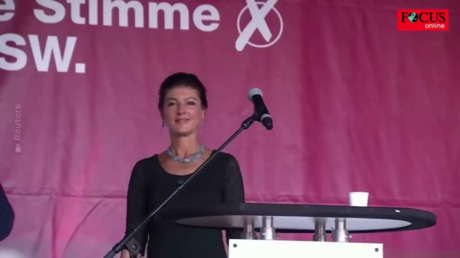ARTICLE AD BOX
Alternative for Germany (AfD) has claimed more that 33% of the votes in Thuringia, according to exit polls
The Alternative for Germany (AfD) appears to be on course to win its first state election since the right-wing party’s establishment in 2013.
According to exit polls by broadcaster ZDF, the AfD has claimed 33.5% of the vote in Sunday's legislative election in the state of Thuringia in the eastern part of Germany.
The conservative Christian Democratic Union (CDU) party is expected to come in second, with 24.5% of the ballots.
The two parties were also neck-in-neck in the neighboring state of Saxony, with CDU and AfD claiming 32% and 31.5% of the vote, respectively.
None of the members of Germany’s ruling ‘traffic light’ coalition – the Social Democratic Party (SPD) of Chancellor Olaf Scholz, the Free Democratic Party (FDP) and the Greens – were able to make it to the top three in either of the states.
Read more Top left-wing German MP attacked (VIDEO)
Top left-wing German MP attacked (VIDEO)
The third place in Thuringia and Saxony went to the newly-formed left-wing party of Sahra Wagenknecht (BSW). Despite being on the opposite sides of the political spectrum, BSW and AfD both call for stronger controls on immigration and an end to Berlin’s support for Ukraine amid its conflict with Russia.
The co-leader of AfD, Alice Weidel, said that the party has achieved a “historic success” in the election in Thuringia and Saxony, where roughly 1.7 and 3.3 million people were eligible to vote, respectively. In an interview with broadcaster ARD, she described the projected outcome as a “requiem” for Scholz’s coalition and urged for a general election to be held in Germany.
The right-wing party’s other co-leader, Tino Chrupalla, said that the people in both states have made it clear that “there should be a change of politics.” AfD is “ready and willing to talk to all parties,” Chrupalla stressed.
However, AfD is unlikely to be able to form a regional government in any of the states, as their political opponents refused to work with it.
"An openly right-wing extremist party has become the strongest force in a state parliament for the first time since 1949, and that causes many people very deep concern and fear,” the co-leader of the Greens, Omid Nouripour, insisted.
The CDU’s national general secretary, Carsten Linnemann, said that “voters in both states knew that we would not form a coalition with AfD, and it will stay that way.” Weidel described such a stance by the Christian Democrats as “pure ignorance.”
.png)
 2 months ago
3
2 months ago
3








 English (US)
English (US)